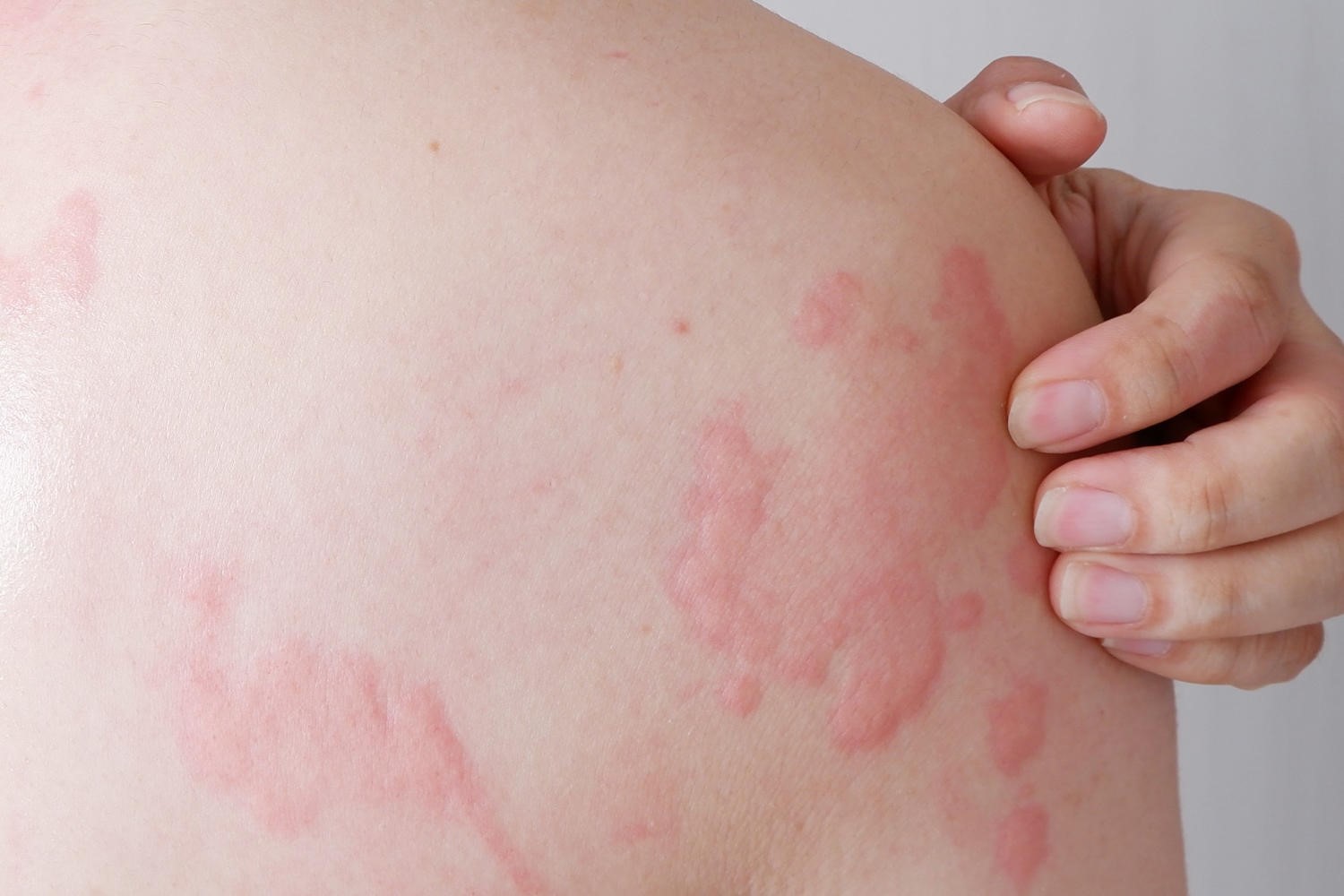
Urticaria affects at least 1 in 5 people: what it is and how to treat it
Let’s talk about urticaria. The skin itches, gets red and develops small, insect bite-like bumps
These are the characteristic symptoms of urticaria, an inflammation of the skin that does not always have an easily identifiable cause
Many people have had to live with it: hives mainly affect women, usually occur between the ages of 20 and 60, and it is estimated that almost one in five people have developed it at least once in their lifetime.
What exactly is urticaria?
It is an inflammatory skin disease characterised by hyper-reactivity of the immune system.
It is not an allergy, and therefore food allergy testing is not necessary.
It is caused by multiple factors, and sometimes these are not easily detectable.
The most common symptoms are itching and pomphi, i.e. reddened and raised skin; they last a few hours and then disappear spontaneously.
In 40% of cases there may be associated swelling of certain parts of the body, called angioedema, which may last longer.
Urticaria is unpredictable: it is often not possible to predict or prevent its onset
It also has a variable duration: it is generally defined as chronic if the symptoms last more than 6 weeks.
It often regresses within a year after it first developed but in some cases, although they are a minority, it can persist for years.
What are the causes?
Even today it is not clear what causes urticaria.
There are forms that are triggered by clearly identifiable external stimuli, and therefore classified as ‘inducible urticaria’.
However, about two thirds of chronic urticaria cases have no identifiable cause and are referred to as ‘chronic spontaneous urticaria’.
How is it diagnosed?
The diagnosis is based on the presence of clinical signs and symptoms such as pomphi, itching and angio-oedema.
However, these symptoms are not specific only to this disease, so it is necessary to consult a dermatologist or allergist specialised in urticaria for a correct diagnosis.
No special diagnostic tests are therefore needed, although in specific cases (e.g. in certain chronic forms) some investigations, such as a blood test, may be useful to rule out possible secondary causes.
Further diagnostic tests must then be evaluated on the basis of the story told by the patient and the clinical features of his or her urticaria.
What does it mean to live with urticaria?
Living with it is very difficult.
A person with urticaria feels great embarrassment and discomfort in his or her skin, which affects all areas of life, from social and work relations to relationships with friends and one’s partner.
The unpredictability of this illness can also lead to anxiety. In addition, the itching is often so intense that it makes sleeping and resting difficult, thus markedly impairing the quality of life.
Can urticaria be cured?
The initial therapy involves the use of antihistamines in a gradual dosage to control the symptoms of the disease.
If there is no response and in the case of chronic forms, biological drugs such as monoclonal antibodies are also available.
Even if urticaria is not an allergic disease, it may also be useful to limit intake of foods that contain high levels of histamine: this molecule is in fact the main chemical mediator responsible for itching, which helps to better control symptoms.
Are there dedicated courses for patients with urticaria?
Mild forms can be managed safely by one’s treating physician.
However, if antihistamine therapy cannot cure it, it is necessary to go to a specialised centre in order to have access to more specific treatments such as monoclonal antibody therapies.
Read Also:
Emergency Live Even More…Live: Download The New Free App Of Your Newspaper For IOS And Android
What Is Urticaria (Hives)? The Role Of Histamine And How To Intervene
Anaphylactic Shock: What It Is And How To Deal With It
Psoriasis: What It Is And What To Do
Respiratory Or Food Allergies: What Is The Prick Test And What Is It For?
Wasps, Bees, Horseflies And Jellyfish: What To Do If You Get Stung Or Bitten?
Psoriasis, An Ageless Skin Disease
Psoriasis: It Gets Worse In Winter, But It’s Not Just The Cold That’s To Blame
Childhood Psoriasis: What It Is, What The Symptoms Are And How To Treat It
Topical Treatments For Psoriasis: Recommended Over-The-Counter And Prescription Options
What Are The Different Types Of Psoriasis?
Phototherapy For The Treatment Of Psoriasis: What It Is And When It Is Needed


